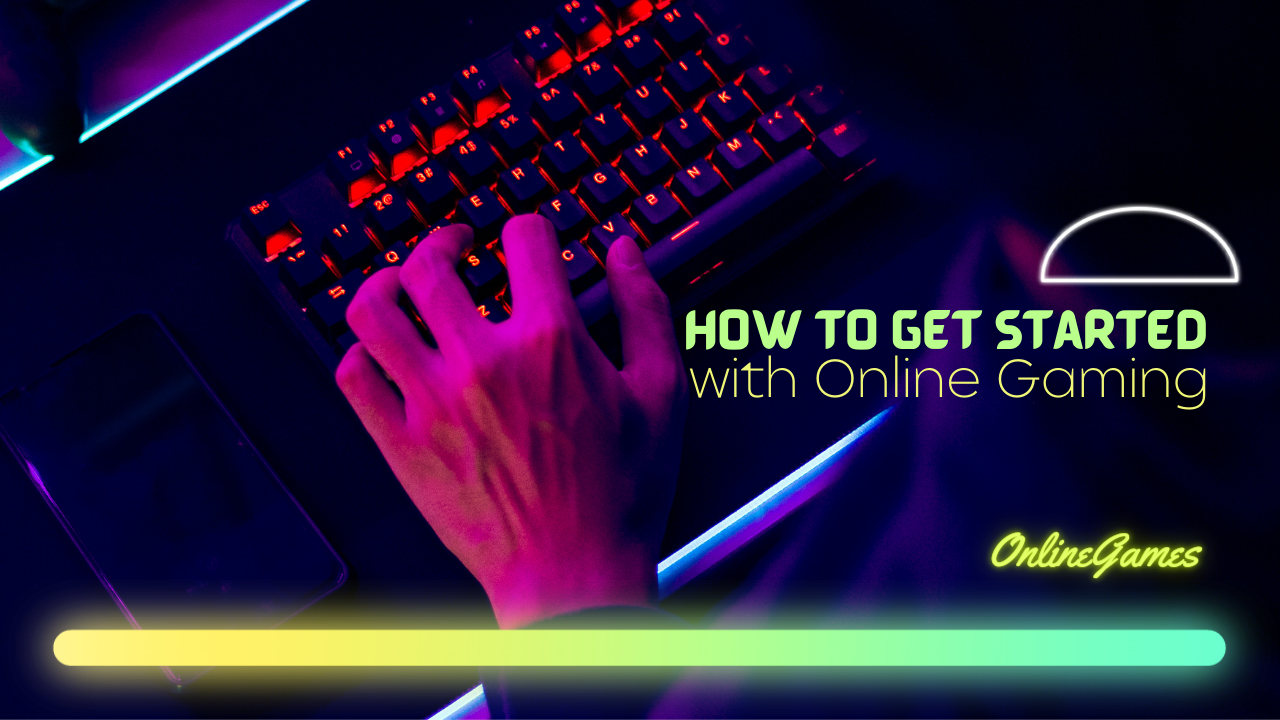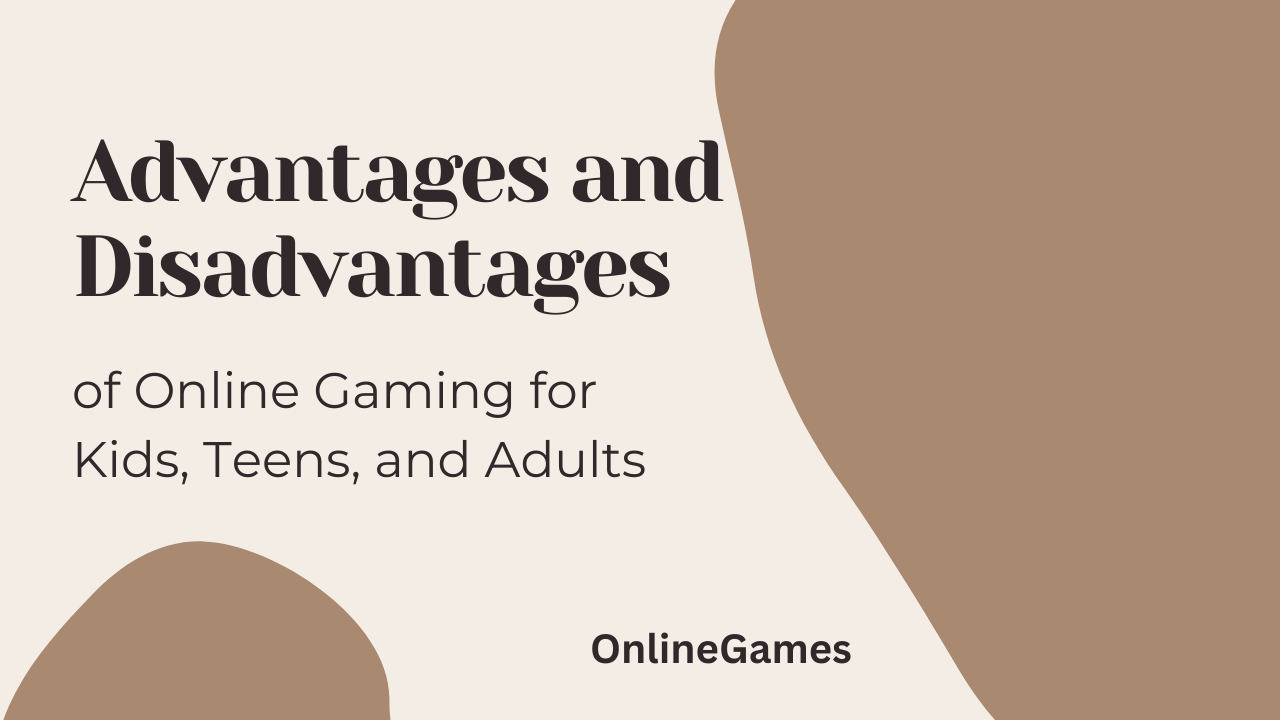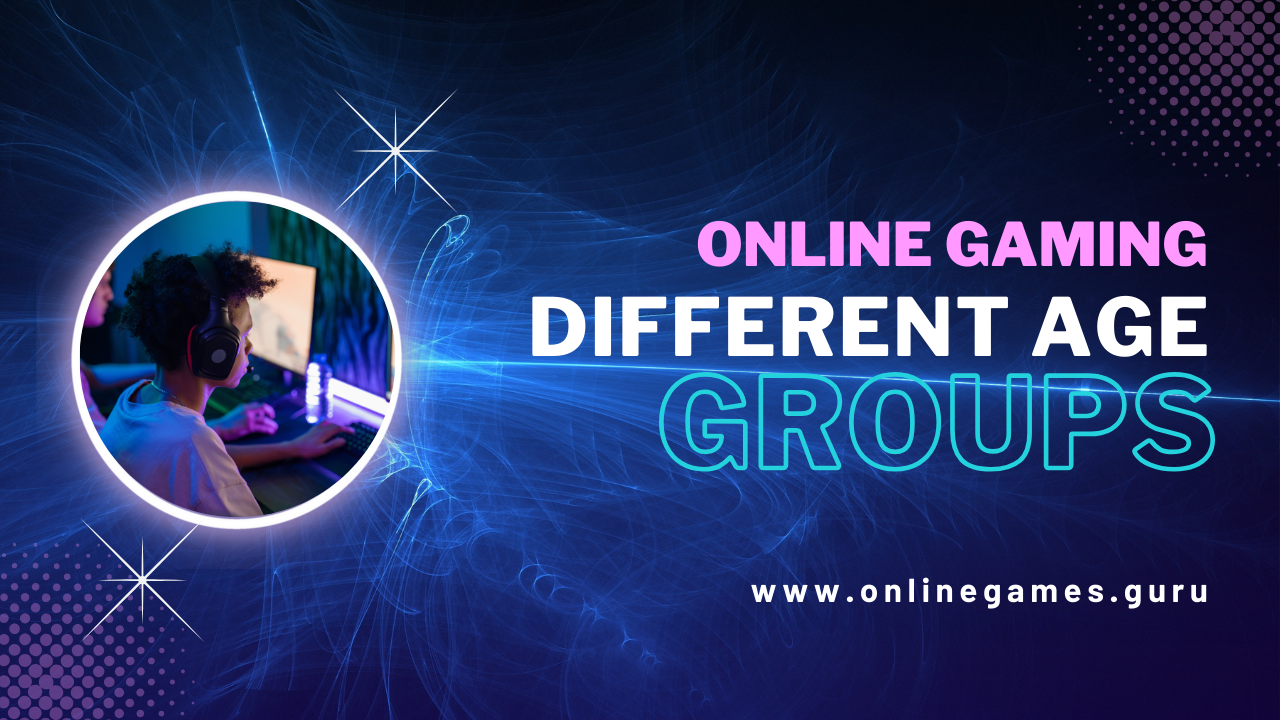Online gaming, a dynamic and rapidly growing sector, involves playing video games over a network, typically the Internet. These games can be played solo or with others, offering a rich array of experiences that range from simple puzzles to complex multiplayer universes. With advancements in technology, online gaming has become more accessible and diverse, catering to a wide range of interests and skill levels.
Importance of Online Gaming
The significance of online gaming extends beyond entertainment. It fosters social connections, enhances cognitive skills, and provides a platform for learning and creativity. Games often involve problem-solving, strategic thinking, and teamwork, which can translate into valuable life skills. Moreover, the industry itself is a major economic driver, with billions of dollars in revenue and millions of jobs worldwide.
Growth and Future of the Industry
The online gaming industry has witnessed exponential growth, fueled by advancements in technology, increased internet penetration, and a growing gamer population. According to industry reports, the global gaming market is expected to reach $268.8 billion by 2025. The future of online gaming looks promising, with trends pointing towards more immersive experiences through virtual reality (VR) and augmented reality (AR), increased integration of artificial intelligence (AI), and the expansion of Esports.
Understanding Online Gaming
Definition of Online Gaming
Online gaming refers to any video game that is played over the internet. This can range from browser-based games to more complex games requiring specialized gaming consoles or computers. The key feature is the ability to connect with other players in real time, regardless of geographical location.
Types of Online Games
Multiplayer Online Games
Multiplayer games are designed for multiple players, often involving cooperation or competition. They range from massive multiplayer online role-playing games (MMORPGs) like “World of Warcraft” to first-person shooters (FPS) like “Call of Duty.”
Single-player Online Games
These games are designed for solo play, but they require an internet connection for activities such as leaderboards, in-game purchases, or syncing progress across devices. Examples include “Candy Crush Saga” and “Subway Surfers.”
Esports
Esports, or electronic sports, refer to competitive gaming at a professional level. Games like “League of Legends,” “Fortnite,” and “Dota 2” have massive audiences and professional leagues, with players competing for significant prize money.
Platforms for Online Gaming
Consoles
Gaming consoles like PlayStation, Xbox, and Nintendo Switch are popular platforms for online gaming. They offer a range of games, from action-packed adventures to family-friendly titles.
PCs
PC gaming is versatile, offering a vast selection of games and the ability to customize hardware for optimal performance. Popular platforms include Steam, Epic Games Store, and Battle.net.
Mobile Devices
Mobile gaming has surged in popularity due to its convenience and the increasing power of smartphones and tablets. Games like “Clash of Clans” and “PUBG Mobile” are prime examples of successful mobile titles.
VR Systems
Virtual reality offers an immersive gaming experience, allowing players to physically interact with the game environment. Devices like the Oculus Rift and HTC Vive are leading the way in VR gaming.
Getting Started with Online Gaming
Essential Equipment and Software
To start online gaming, you’ll need some basic equipment:
- Gaming Device: A console, PC, or mobile device.
- Internet Connection: Preferably high-speed broadband.
- Peripherals: Controllers, headsets, and possibly a gaming chair for comfort.
- Software: The game itself, often downloaded from a digital store.
Creating an Account
Most online games require an account, which allows you to save progress, purchase games, and access multiplayer features. Platforms like Steam, Xbox Live, and PlayStation Network offer user accounts that provide access to a wide range of games and services.
Choosing a Gaming Platform
Your choice of platform depends on factors such as budget, game availability, and personal preference. Consoles offer ease of use and exclusive titles, while PCs offer more flexibility and a larger game library. Mobile gaming is ideal for casual gaming on the go.
Selecting Your First Game
When choosing your first game, consider your interests and gaming experience. Beginners might prefer simpler, more accessible games, while experienced gamers might enjoy more complex titles. Reading reviews and watching gameplay videos can help you make an informed decision.
Popular Online Games and Genres
Action Games
Action games are characterized by fast-paced gameplay and often involve combat and physical challenges. Examples include “Fortnite,” “Overwatch,” and “Apex Legends.”
Adventure Games
Adventure games focus on storytelling and exploration, often involving puzzle-solving. Popular titles include “The Legend of Zelda: Breath of the Wild” and “Tomb Raider.”
Role-playing Games (RPGs)
RPGs involve character development, with players assuming roles in a fictional world. “The Witcher 3: Wild Hunt” and “Final Fantasy XIV” are standout examples.
Strategy Games
Strategy games require planning and tactics to achieve victory. Examples include “Civilization VI” and “StarCraft II.”
Sports Games
Sports games simulate real-world sports. Popular franchises include “FIFA,” “Madden NFL,” and “NBA 2K.”
Simulation Games
Simulation games mimic real-life activities, such as building cities or managing resources. Notable games include “The Sims” and “SimCity.”
Casual Games
Casual games are easy to learn and play in short sessions. They include titles like “Candy Crush Saga” and “Angry Birds.”
Setting Up Your Gaming Environment
Ideal Gaming Setup
An ideal gaming setup includes a powerful gaming device, a comfortable chair, a large screen or monitor, and quality audio equipment. It’s important to have adequate ventilation to prevent overheating and sufficient lighting to reduce eye strain.
Hardware Requirements
Ensure your device meets the minimum specifications for the games you want to play. This might include a powerful CPU, ample RAM, and a high-quality graphics card for PC gaming.
Software and Drivers
Keeping your software and drivers up to date is crucial for optimal performance and compatibility. Regular updates can also improve security and add new features.
Ergonomic Considerations
Proper ergonomics can prevent strain and injury. Invest in a comfortable chair, position your screen at eye level, and take regular breaks to stretch and move around.
Internet Connection Requirements
A stable and fast internet connection is essential for online gaming, especially for multiplayer games. A wired connection is usually more reliable than Wi-Fi. Aim for a minimum download speed of 3 Mbps and an upload speed of 1 Mbps for a smooth gaming experience.
Understanding Game Mechanics
Basic Game Mechanics
Game mechanics refer to the rules and systems that govern gameplay. This includes movement, combat, and interaction with the game world. Understanding these mechanics is key to mastering any game.
Game Physics
Game physics simulates real-world physics in a game, affecting how objects move and interact. This includes gravity, collisions, and the behaviour of fluids and other materials.
Character Development
In many games, players can develop their characters by gaining experience, levelling up, and acquiring new skills and abilities. This progression can significantly affect gameplay and strategy.
In-game Economy
Many games feature an in-game economy where players can earn, spend, and trade currency or items. Understanding this economy can be crucial for acquiring better gear and progressing in the game.
Multiplayer Dynamics
Multiplayer games often involve complex social dynamics, including teamwork, competition, and communication. Success in these games requires not only individual skill but also the ability to work effectively with others.
Community and Social Aspects
Joining Gaming Communities
Joining a gaming community can enhance your gaming experience by providing support, tips, and social interaction. These communities often form around specific games or genres and can be found on platforms like Reddit, Discord, and Steam.
Communication Tools and Etiquette
Effective communication is key in multiplayer games. Many games offer voice chat and messaging systems. It’s important to be respectful and follow community guidelines to ensure a positive experience for all players.
Online Safety and Cyberbullying
Online gaming can expose players to cyberbullying and other risks. Protect your personal information, use strong passwords, and report any abusive behaviour. It’s also important to educate yourself and others about the risks and how to stay safe online.
Advanced Gaming Strategies
Developing Gaming Skills
Improving your gaming skills involves practice, learning from others, and analyzing your gameplay. Watching tutorials, joining forums, and participating in competitions can also help you advance.
Understanding Game Meta
The game meta refers to the most effective strategies and tactics currently used in a game. Staying informed about the meta can give you a competitive edge, especially in multiplayer games.
Competitive Gaming and Esports
Esports offer opportunities for competitive gaming at a professional level. Joining or forming a team, participating in tournaments, and staying up to date with the latest strategies are key steps to becoming a successful Esports player.
Game Streaming and Content Creation
Streaming and content creation can be a rewarding way to share your gaming experiences and build a community. Platforms like Twitch and YouTube offer opportunities to broadcast gameplay, create tutorials, and engage with viewers.
Troubleshooting Common Issues
Connectivity Problems
Connectivity issues can disrupt your gaming experience. Common solutions include checking your internet connection, resetting your router, and ensuring your game and software are up to date.
Hardware Malfunctions
Hardware issues can range from overheating to component failure. Regular maintenance, such as cleaning dust from your device and ensuring proper ventilation, can help prevent these problems.
Software Glitches
Software glitches can cause games to crash or behave unexpectedly. Keeping your software and drivers updated, as well as verifying game files, can help resolve these issues.
In-game Issues
In-game issues, such as bugs or glitches, can often be resolved by checking game forums for solutions, updating the game, or reinstalling it. Reporting persistent issues to the game developer can also help.
Balancing Gaming with Life
Setting Healthy Gaming Habits
It’s important to balance gaming with other activities to avoid negative impacts on your health and well-being. Set limits on gaming time, take regular breaks, and engage in physical activity.
Managing Time Effectively
Effective time management can help you balance gaming with work, study, and other responsibilities. Use tools like timers and schedules to allocate time for gaming and other activities.
Impact of Gaming on Mental Health
Gaming can have both positive and negative effects on mental health. It can provide stress relief and social interaction, but excessive gaming can lead to issues like addiction and social isolation. Being mindful of your gaming habits and seeking help if needed is crucial.
Online gaming offers a diverse and engaging world of experiences, from casual fun to competitive Esports. By understanding the basics, exploring different genres, and joining gaming communities, you can enhance your gaming experience and connect with others. Remember to maintain a healthy balance between gaming and other aspects of life, and enjoy the journey.
FAQs
What equipment do I need to start online gaming?
To start online gaming, you’ll need a gaming device (PC, console, or mobile), a reliable internet connection, peripherals like a controller or headset, and the game itself. Ensure your device meets the game’s minimum requirements for a smooth experience.
How do I choose the right game for me?
Choosing the right game depends on your interests and experience level. Consider genres that appeal to you, read reviews, and watch gameplay videos. Start with simpler games if you’re new, and gradually explore more complex titles as you gain confidence.
Is online gaming safe?
Online gaming can be safe if you take precautions. Protect your personal information, use strong passwords, and be aware of potential risks like cyberbullying and scams. Joining reputable gaming communities and following safety guidelines can help ensure a positive experience.
How can I avoid spending too much time gaming?
To avoid excessive gaming, set time limits and stick to them. Balance gaming with other activities, take regular breaks and engage in physical exercise. Using tools like timers and schedules can help you manage your gaming time effectively.










